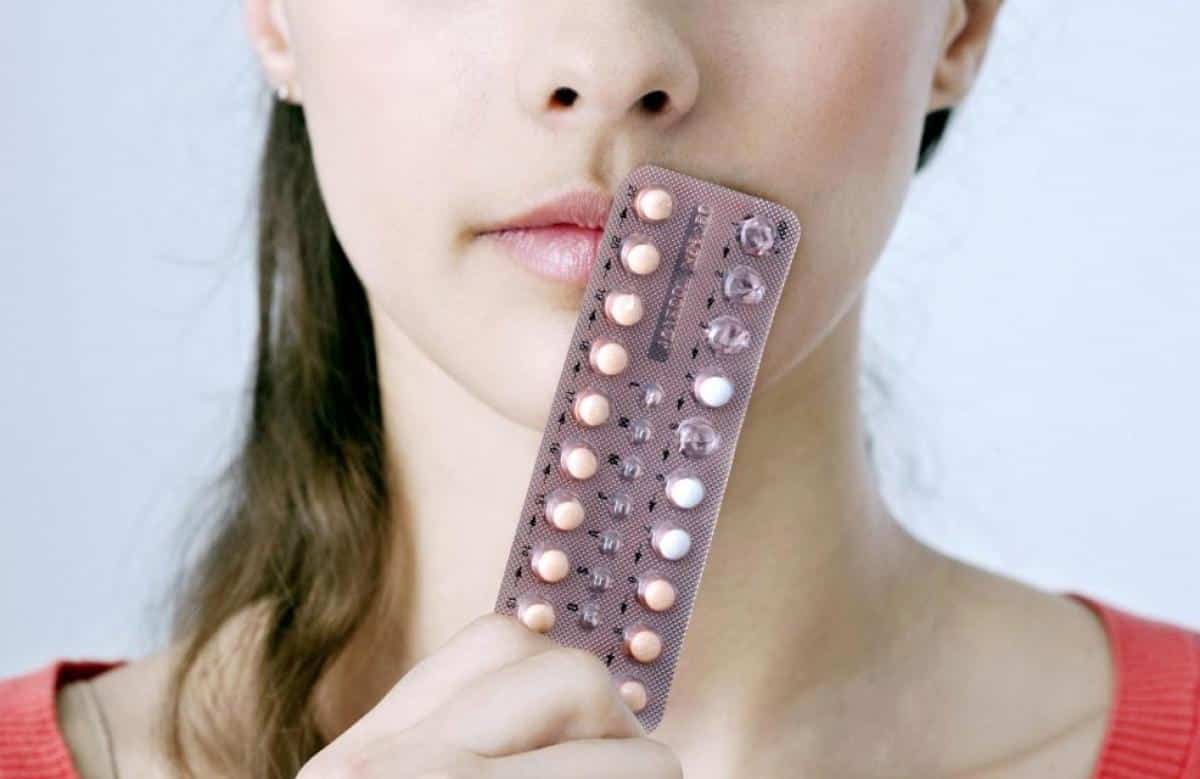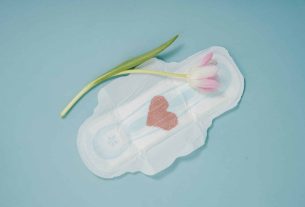Choosing to stop taking contraceptives can bring a series of changes and reactions in the body. Before stopping, it’s worth knowing what they are.
Contraceptives are one of the most popular and used methods to prevent pregnancy. However, like other medicines, the contraceptive pill, despite its benefits, also has its side effects. Whether for this reason, wanting to get pregnant or simply changing the contraceptive method, many women choose to stop taking the contraceptive.
However, this decision, despite seeming simple, can have many effects and reactions on a woman’s body. Not that this is necessarily bad, but it is a sudden change that directly affects the body and it responds with different reactions. Among the most common we can mention an increase in PMS symptoms and cramps, weight gain, increased acne, and of course the possibility of getting pregnant.
So, if you plan to stop taking contraceptives, it is very important to know what this means for your body and prepare to deal with all these changes. Therefore, today we will better understand what these reactions are. Check out.
Contraceptive
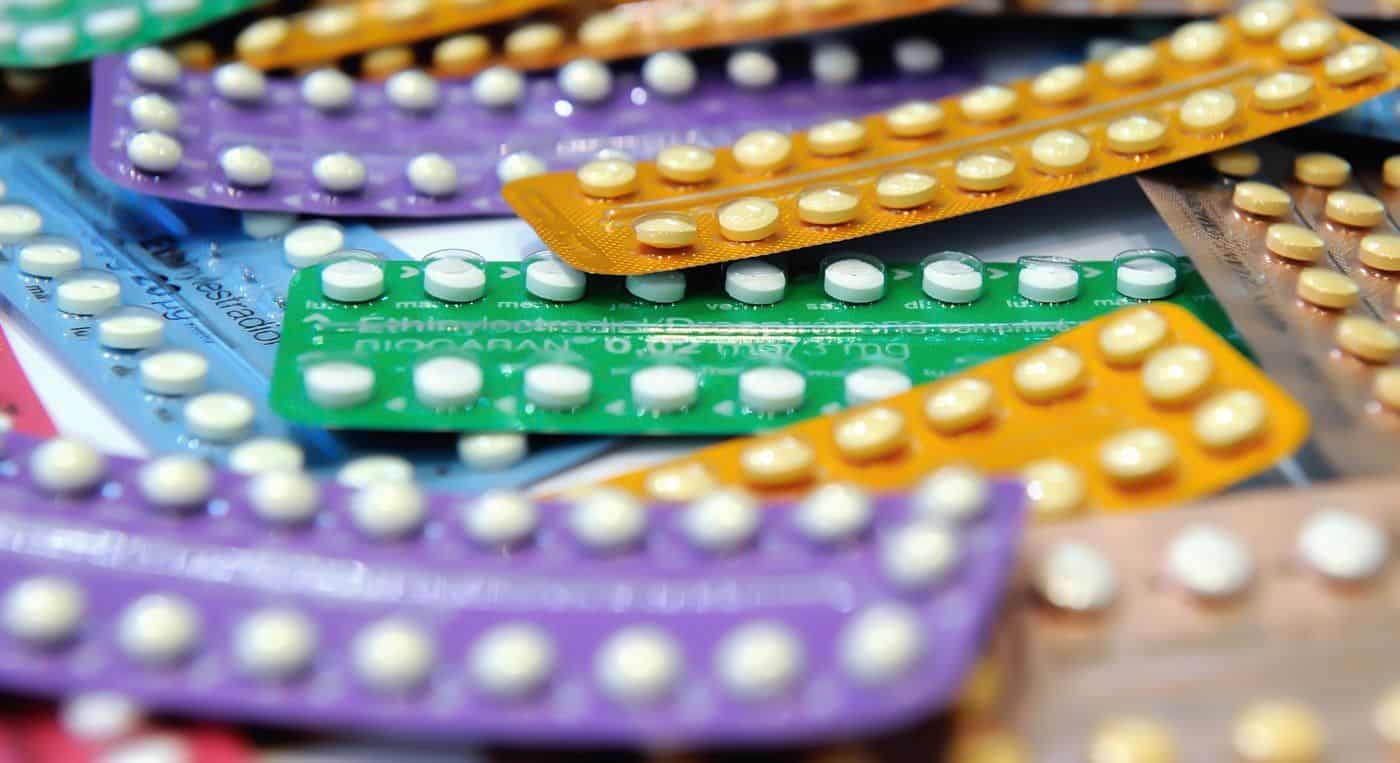
The contraceptive pill entered the market in the early 1960s and became a symbol of the sexual revolution. This is because it has assumed an important role in women’s control over their own bodies and lives.
However, over the years, the widespread use of this type of contraceptive method began to be a factor in distancing women from self-knowledge of their physiologies and bodies. In addition, of course, to the various side effects that the medicine can cause in women. But in addition, other reasons are leading more and more women to stop taking contraceptives.
Remembering that hormonal contraceptives, including the pill, injections, vaginal ring, patch, IUD, among others, work from synthetic hormones, which alter the functioning of the body, in order to avoid an unwanted pregnancy.
Therefore, its main function is to temporarily interrupt the menstrual cycle. So, with the use of contraceptives, the ovaries stop producing sexual hormones, thus, the woman stops being fertile, ovulating and menstruating. This during use. When contraceptive use is stopped, the ovaries return to producing hormones normally and this implies several changes in the woman’s body.
Stop taking contraceptives
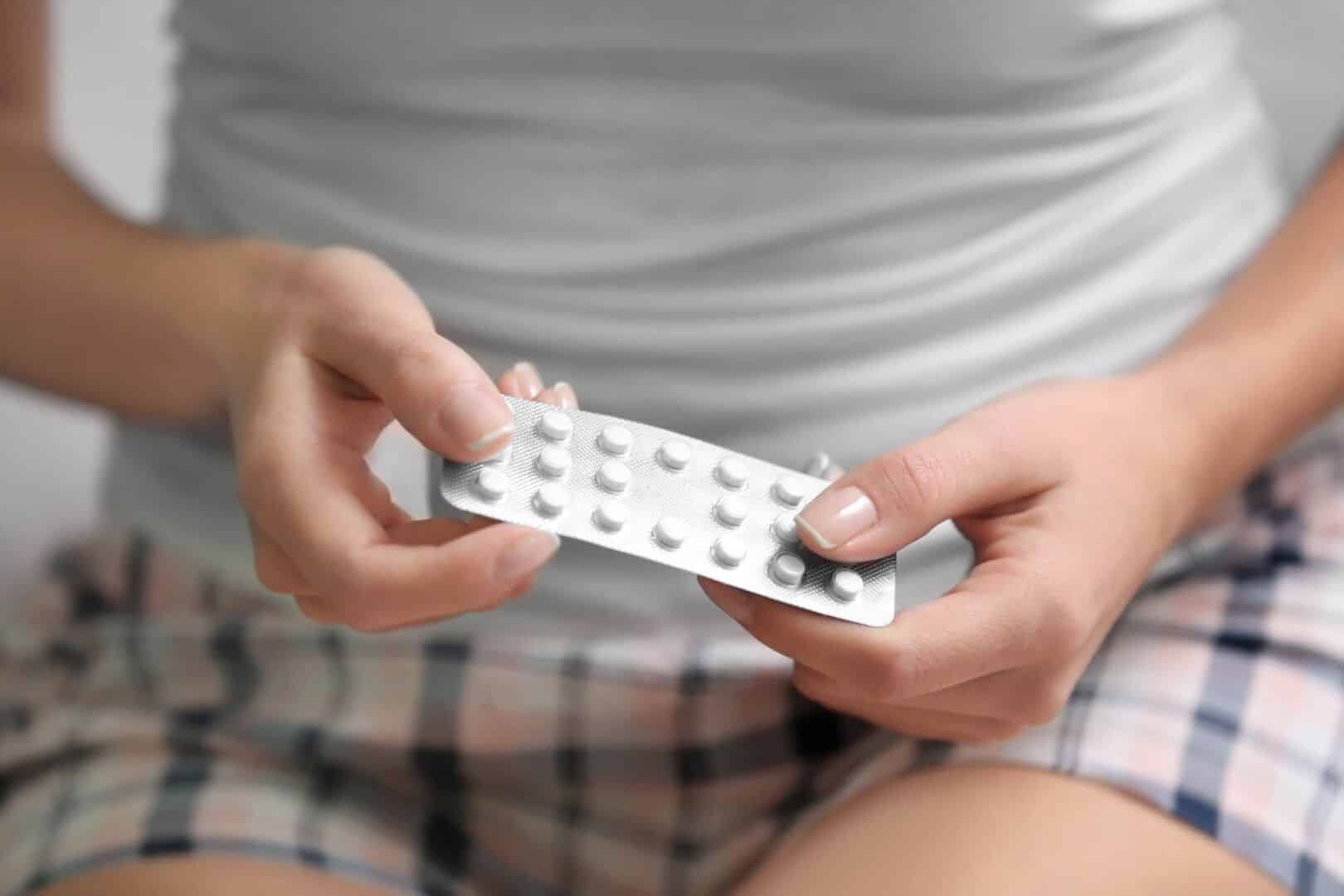
After months or even years of using contraceptives, it is natural for the body to become accustomed to receiving these synthetic hormones. Therefore, when stopping taking contraceptives, the female body takes time to normalize its activities.
As contraceptive hormones act by inhibiting ovarian hormone production, with their interruption, the ovary returns to its normal activity. In other words, the woman returns to having menstrual cycles. The ovaries increase in size and return to their primary function, which is to produce hormones and mature eggs. But this is accompanied by some changes and reactions that go far beyond the return of ovulation.
The contraceptive can be stopped at any time, however, it may be better to wait until the pack is finished to have better control of the menstrual cycle. Changes and reactions to stopping the medication can appear after two weeks, which is when the body begins to notice the lack of artificial hormones. And it is at this stage that the body produces them naturally again.
But it is important to emphasize that this may vary according to each organism and the type of contraceptive used.
Changes in the body after stopping taking contraceptives
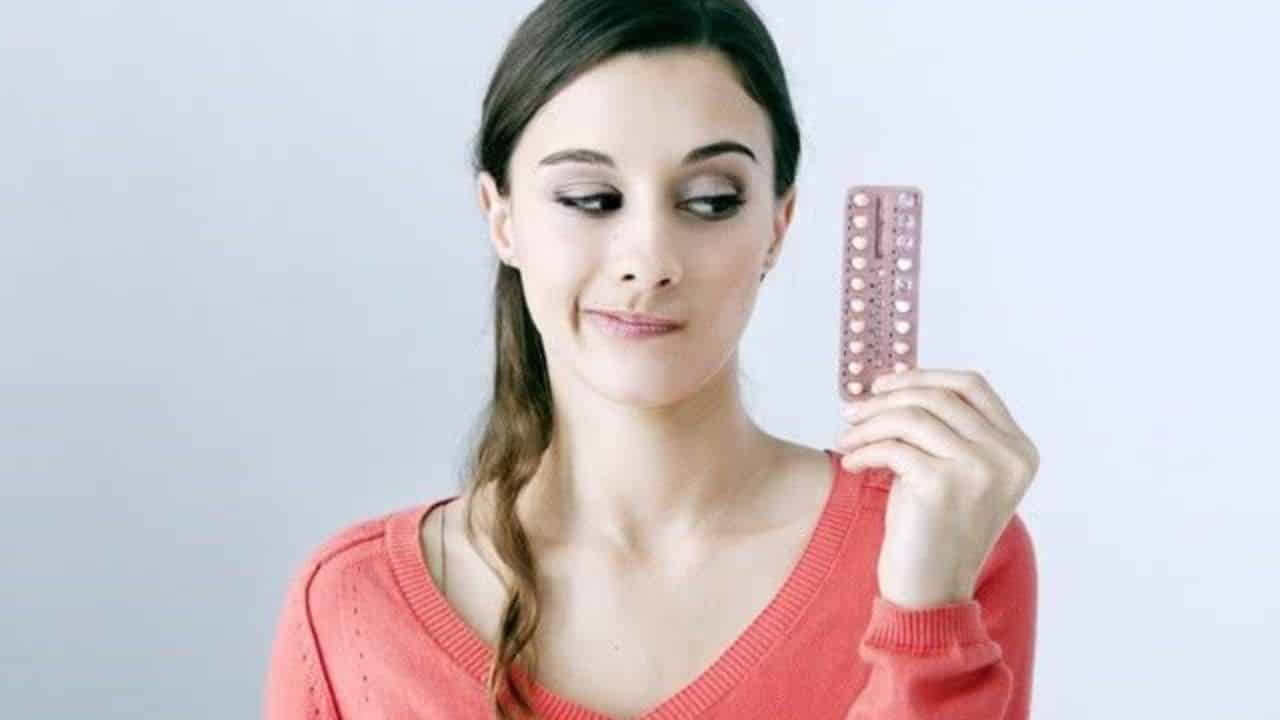
Check out the main changes and reactions of the body after stopping taking contraceptives:
Weight change
It has already been proven that contraceptives can cause fluid retention, depending on the type of pill. Therefore, after stopping taking contraceptives you may lose weight, but not necessarily lose adipose tissue, that is, fat.
On the other hand, as stopping the medication can cause mood changes, the woman may end up gaining weight. This is due to a greater appetite, unwillingness to do physical activities and cravings for sweet foods.
So, to prevent this from happening, the ideal is to focus on a healthy diet, rich in vitamins and nutrients. Therefore, eat vegetables, fruits, greens, fish and cereals, foods that help balance hormone levels and eliminate toxins. In addition, of course, to practicing physical activities.
Unregulated menstruation
When stopping contraceptive use, the ovaries begin to produce their hormones again and function naturally. However, this may take some time, not to mention that the hormones will not be as punctual and constant at first as they were before using the method. Therefore, in the first few months, menstruation may be unregulated.
Changes lasting a few days tend to be normal, the problem is when they are very intense and the woman goes up to two months without menstruating or when she menstruates three times in the same month. In these cases, a gynecologist should be consulted to evaluate the case and hormone levels.
Stronger menstrual cramps
When the menstrual cycle occurs naturally, that is, without the action of contraceptives, the tissue of the uterus becomes thicker, preparing for a possible pregnancy. Therefore, menstrual cramps tend to be stronger and menstrual flow is also greater. So, this is common after stopping taking contraceptives.
One way to alleviate these symptoms is to take specific medications for this purpose, in addition to applying a warm water compress to the belly or lower back.
PMS and mood swings
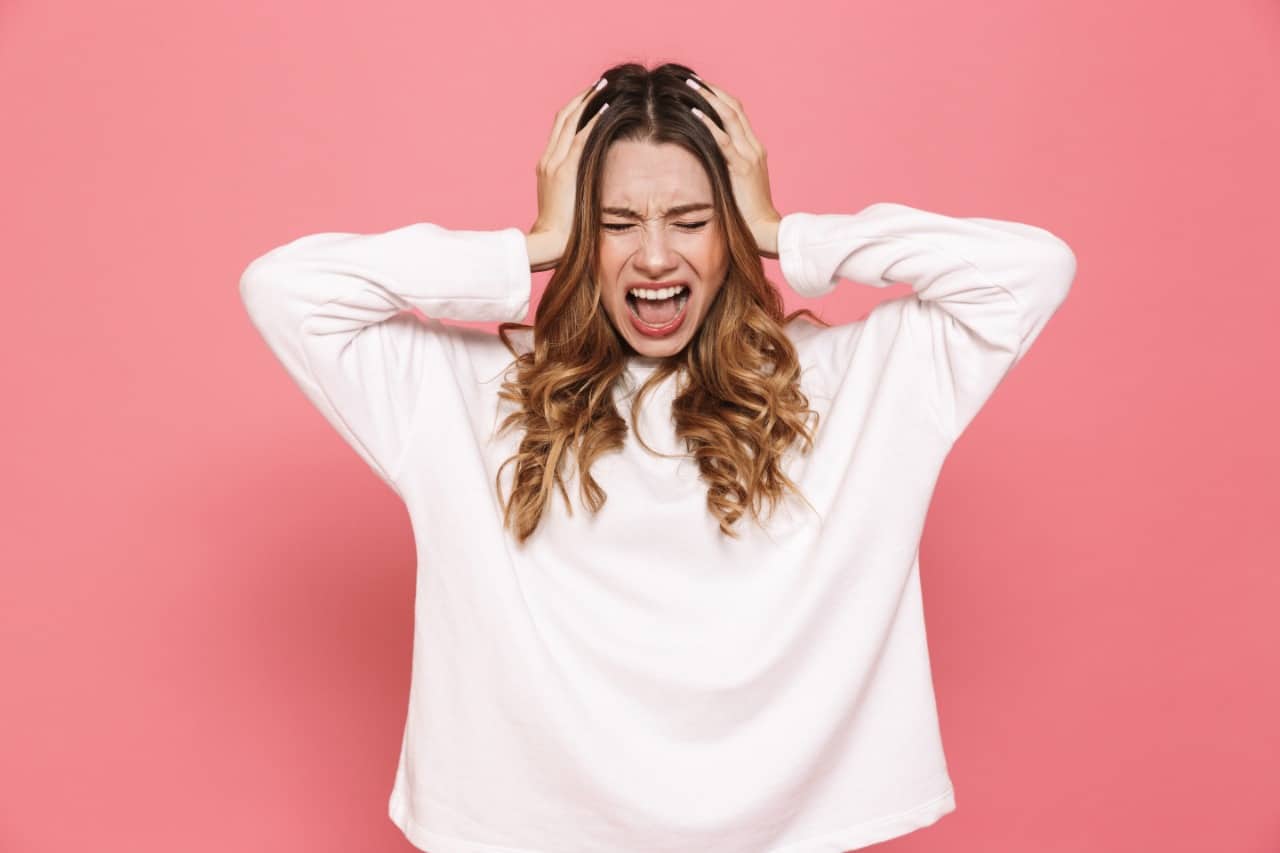
The female hormones, progesterone and estrogen, when produced naturally in the ovaries tend to have a more intense and abrupt variation during the month. Therefore, with the interruption of contraceptives it is common to increase the common symptoms of PMS, such as irritability, sadness, impulsivity, headaches, sleep changes, among others.
Increased skin oiliness
The vast majority of contraceptives inhibit the production of testosterone, consequently leaving the skin cleaner, without oil that clogs the pores and also reduces acne. Therefore, when you stop taking contraceptives, it is common for your skin to become more oily again and for pimples to increase.
In this case, you should resort to treatments using products designed to reduce skin oil, such as lotions and astringent soaps. In cases of severe pimples, the ideal is to see a dermatologist for more specific treatment.
Stopping taking birth control increases hair loss and libido
Due to the fact that several contraceptives inhibit the production of hormones, such as testosterone, it is common that when stopping use, production returns to normal. Therefore, it is common for more hair to appear than you are used to while using the pill. In addition, the voice may also become a little hoarse and the libido also increases.
Intimate secretions
After stopping taking contraceptives, it is also common for women to feel more moisture in the intimate area, both in everyday life and during intimate contact. This is completely normal and is part of the body’s increased natural production of estrogen.
There’s not much you can do about it, it just indicates that the ovaries are working well. The ideal is to maintain intimate hygiene to prevent the proliferation of bacteria in the region.
Possibility of getting pregnant after stopping taking contraceptives
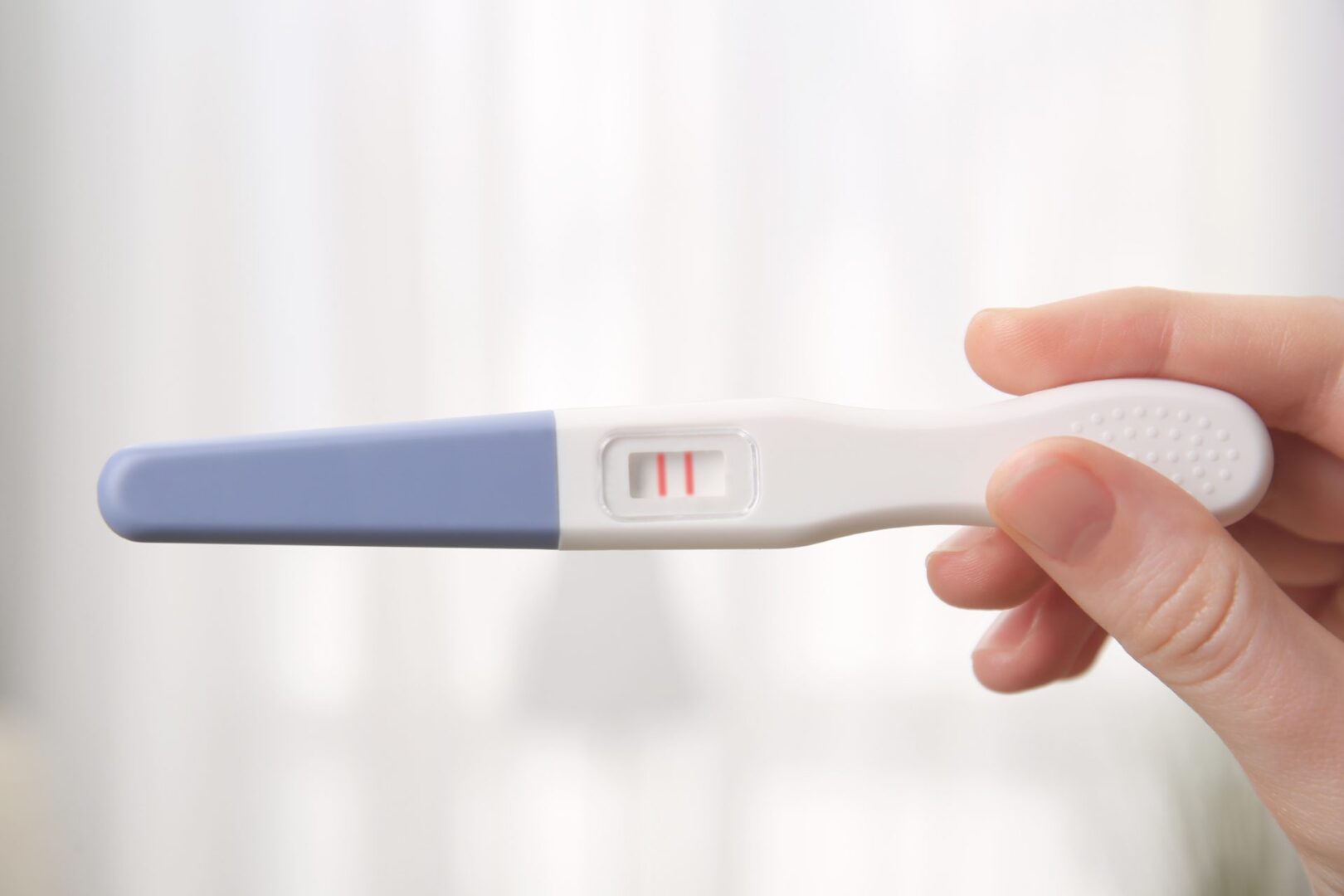
This is inevitable, since the purpose of contraceptives is to prevent pregnancy. So, with its interruption and the absence of another contraceptive method, the woman can become pregnant.
However, the body’s adaptation time to the absence of hormones present in the contraceptive may vary from woman to woman. In some cases it can be in the first few days and in others up to a year, especially when the contraceptive has been used for a long time.
Injectable contraceptives, for example, can cause a longer delay for the ovaries and uterus to be ready for pregnancy. But everything will depend on the body and how long it will take to completely eliminate artificial substances and produce its own naturally again.
Therefore, if the intention of stopping contraceptives is not to get pregnant, it is a good idea to choose another contraceptive method.
Anyway, what did you think of this article? In fact, take the opportunity to also check out When should a woman start taking contraceptives?
Sources: Herself Tua Saúde Analisis Endoclínica
Imagens: MX Bike Fitness Lifestyle Partmed Dona Giraffa Clinipop Tulipa Baby

